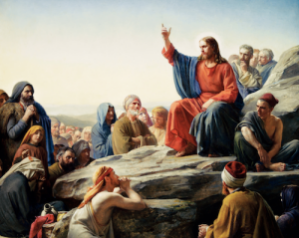What did Jesus mean when, after having dismissed Judas, he told his eleven faithful apostles that they were "already clean" because of the word that he had spoken to them? Remember earlier, when Jesus took a basin with water and proceeded to wash the feet of his disciples (with Judas still present), Peter objected and told Jesus, "You will certainly never wash my feet." He was startled when Jesus answered him by saying: "Unless I wash you, you have no part with me." Peter immediately reversed his objection and replied: "Lord, not my feet only, but also my hands and my head." In turn, Jesus answered: "He that has bathed does not need to have more than his feet washed, but is wholly clean. And you men are clean, but not all." The apostle John, one of the twelve who was present, explains further: "[Jesus] knew, indeed, the man betraying him (Judas). This is why he said: 'Not all of you are clean.'" (John 13:2-11)
This may raise the question: In what way does a person become "clean"? Is it by means of God's word, as Jesus indicates above? Or do we become clean when being bathed in water – that is, baptism – as some suggest regarding the washing of the feet of his disciples, for they were all baptized by John the Baptist? (John 12:49,50; Acts 22:16) Is Jesus perhaps talking about a "spiritual" cleanliness, and therefore the washing of the feet of his disciples was "in symbol" of that cleansing?
Did you know that the expression "in symbol of" is not found anywhere in the Bible; although it appears in the New World Translation (NWT) in four places, all in connection with the baptism of John the Baptist? For example, according to the NWT, Mark 1:4 reads: "John the baptizer turned up in the wilderness, preaching baptism [in symbol] of repentance for forgiveness of sins." (also at Luke 3:3; Acts 13:24; 19:4)
εγενετο ιωαννης ο βαπτιζων εν τη ερημω κηρυσσων βαπτισμα μετανοιας εις αφεσιν αμαρτιων (ΚΑΤΑ ΜΑΡΚΟΝ 1:4)
-
Repentance for our sins – our past disobedience to God; for without genuine repentance there can be no forgiveness. (Isaiah 1:16-20; Luke 13:3)
-
Then, complete forgiveness for our sins is made possible by Jesus' death, in which we must put faith. (John 8:24; 1 Corinthians 15:22)
-
This must be followed by baptism, for baptism is a command from God. The Bible does not say that baptism is "in symbol" of anything (certainly not in symbol of one's dedication to God, which is not even mentioned in the Scriptures). By submitting to water baptism we simply demonstrate our obedience to God's command. Have we not already repented of our past disobedience? Hence, it is our obedience by which we attain a clean standing before God, not that the water itself cleanses us. (compare Matthew 7:21-23)

